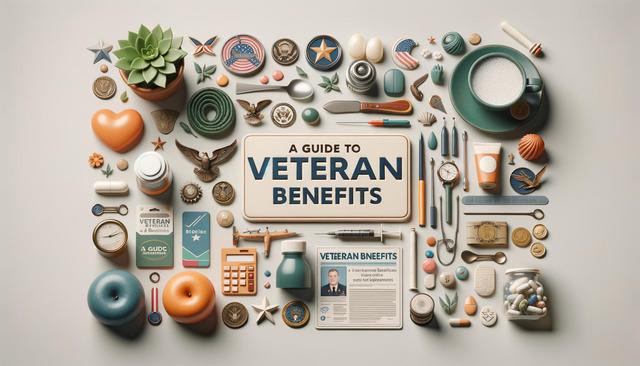Understanding the Purpose of Veteran Benefits
Veteran benefits are a cornerstone of the support system available to those who have served in the armed forces. These benefits are not just financial aids; they are acknowledgments of service and sacrifice. The transition from military to civilian life can pose various challenges, including adapting to new job environments, managing healthcare needs, or finding affordable housing. Veteran benefits are designed to address these areas by providing structured programs that help veterans re-establish themselves in civilian society. Each benefit is tailored to meet specific needs, whether it’s through comprehensive healthcare coverage or educational support for skill development.
One of the key goals of these programs is to ensure that no veteran is left without access to essential services. By offering a wide range of support systems, these benefits help bridge the gap between military service and civilian life. This approach not only honors the commitment of veterans but also promotes stability and opportunity for them and their families.
Healthcare Support for Veterans
Healthcare is one of the most critical areas where veteran benefits make a significant impact. The system provides access to medical care through dedicated healthcare facilities designed specifically for veterans. These services often include:
- Preventive care and routine check-ups
- Mental health services, including counseling and support for PTSD
- Specialized treatment related to service-connected injuries or conditions
- Prescription medication and rehabilitation programs
Veterans may also be eligible for additional healthcare options based on factors like service length, disability rating, and income level. Mental health services are a growing focus, with increased resources being allocated to address issues such as depression and anxiety, which can be common after active duty. Eligibility and enrollment processes are designed to be streamlined, but it’s advisable for veterans to consult with a benefits advisor or local veterans’ organization to ensure they receive all available services.
Educational Opportunities and Financial Assistance
Education benefits are another vital component of the support system for veterans. These programs help ease the financial burden of higher education and provide pathways to new career opportunities. Veterans can access funding for:
- College tuition and fees
- Vocational and technical training
- Certification programs
- On-the-job training and apprenticeships
Many of these programs also include living stipends, book allowances, and assistance with school supplies. Some benefits are transferable to dependents, which can be a significant advantage for families. These educational tools empower veterans to pursue new goals and increase their earning potential in the civilian workforce. It’s important for veterans to research their eligibility and the time limitations for using these benefits, as they may vary depending on the program and the veteran’s service history.
Housing Assistance and Homeownership
Access to stable housing is a fundamental need, and veteran benefits include several programs aimed at making homeownership more attainable. These initiatives can help veterans:
- Secure low-interest home loans with no down payment
- Access grants for home modifications due to service-related disabilities
- Receive rental assistance or temporary housing for those experiencing homelessness
These housing benefits not only provide financial support but also promote long-term stability and community integration. Home loan programs are particularly popular, as they offer favorable terms compared to conventional mortgages. Additionally, there are support services available to help veterans navigate the housing market, including credit counseling and homebuyer education. By reducing the barriers to homeownership, these programs enable veterans to establish a solid foundation for themselves and their families.
Employment Resources and Career Transition Support
Veterans bring a wealth of skills and discipline to the civilian workforce, but transitioning to a new career can still be challenging. Veteran benefits include employment resources designed to support job readiness and career advancement. These services may offer:
- Job placement assistance and resume building
- Career counseling and skill assessments
- Access to federal job listings with veteran preference
- Support for small business development
Many programs also collaborate with employers to create veteran-friendly workplaces and provide on-the-job training opportunities. Some initiatives are focused on helping veterans start their own businesses, offering mentorship, grants, and networking opportunities. Understanding these resources and how to access them can make a significant difference in a veteran’s ability to find fulfilling employment and achieve long-term career success.
Conclusion: Navigating the Path After Service
Veteran benefits play a vital role in supporting those who have served by offering practical solutions to everyday challenges in civilian life. From healthcare and education to housing and employment, these programs are designed to uphold the value of service while fostering personal and professional growth. Veterans and their families are encouraged to explore the full range of available benefits and seek guidance when needed. By understanding and utilizing these resources, veterans can build a stable, secure, and rewarding life beyond their military service.


